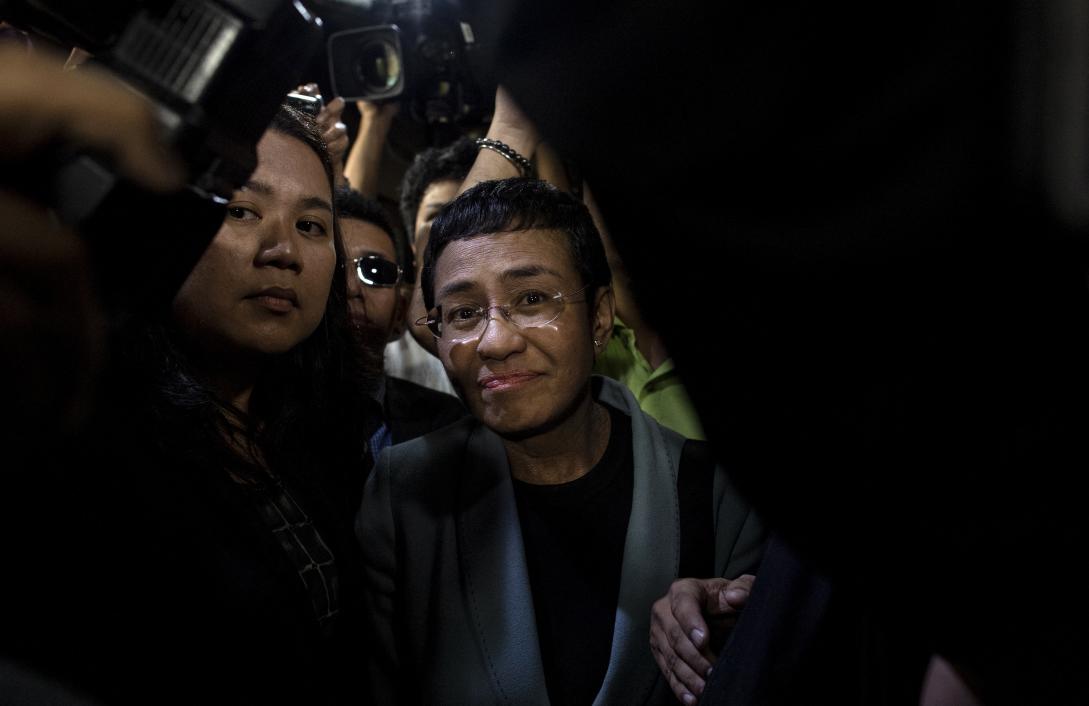Countering violence and crimes against journalists

“Independent journalists protect freedom of expression and guarantee access to information for all citizens. They contribute to the foundations of democracy and open societies. Be it at home or around the globe, the impunity for crimes against journalists must end”, said High Representative/Vice-President Josep Borrell and Vice-President Věra Jourová in a joint statement to mark the date.
It is in the context of increasing assaults on a free press across the world that the 2021 Nobel Peace Prize went to journalists Maria Ressa and Dmitri Muratov. The award is a recognition of the growing repression of media and the important role of journalists in bringing to light human rights violations. Prison and over 90 hateful messages every hour on Facebook… the journalist Maria Ressa who published stories criticizing the authorities in her country faced multiple criminal charges and became the target of a sustained campaign of online gendered abuse.
On receiving the 2021 Nobel Peace Prize, Dimitry Muratov pointed out that the real recipients should be those who lost their lives doing their job. The award came a day after the 15th anniversary of the killing of Anna Politkovskaya, one of six murdered Novaya Gazeta reporters. Poisoned, arrested, subjected to a mock execution and killed in October 2006 - Anna Politkovskaya had refused for 7 years to give up reporting on the war in Chechnya despite numerous acts of intimidation and violence.
Attacks against journalists are committed in almost any country. Between 2006 and 2020, over 1,200 journalists lost their lives for reporting the news. The most shocking fact is that for every ten cases of journalists murdered, only one ends in successful prosecution of the perpetrators (UNESCO).
The 2021 International Day to End Impunity for Crimes against Journalists highlights the instrumental role of prosecutorial services, in investigating and prosecuting not only killings but also threats of violence against journalists.
There are several factors behind the impunity of these crimes: obstruction of investigations and justice, bottlenecks within the justice system itself, such as lack of human and financial resources, corruption, lack of transparency, lack of knowledge. Often the killing of a journalist is considered a “common crime” that has not connection to their profession. But the way forward starts with acknowledging the complexity of these crimes and considering them as crimes against freedom of expression not just against individuals.
Women journalists are particularly impacted by threats and attacks, notably by those made online. According to UNESCO’s recent discussion paper, The Chilling: Global trends in online violence against women journalists, 73% of the women journalists questioned, said they had been threatened, intimidated and insulted online in connection with their work. Online violence against women pursues the so-called “chilling effect” which is aimed at discouraging their active participation in public debate.
This is why, the European Commission published a Recommendation on the Protection, Safety and Empowerment of Journalists (September, 2021) proposing concrete actions:
- the set-up of joint coordination centres
- support services for victims
- early warning mechanisms with a focus on the specific risks for female journalists
It further foresees reinforced and more effective prosecution of criminal acts, cooperation with law enforcement authorities and rapid response mechanisms as well as economic and social protection. Another targeted initiative is under preparation to tackle lawsuits against public participation, which is increasingly affecting the work of independent journalists.




